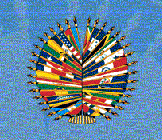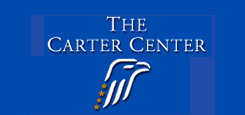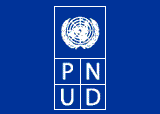Coordinadora Internacional Venezolana
P.O. Box 7655
Arlington, Virginia 22207-0655
USA
Tel: (703)
256-0350
/ Fax:
(703) 535-7998
E-Mail:
washington@civw.org
Venezuela: The Road to the Referendum
Periodic report on developments in Venezuela
INDEPENDENCE OF THE ELECTORAL CHAMBER THREATENED AS FURTHER EVIDENCE OF THE EROSION OF THE RULE OF LAW
Washington, March 16, 2003 - On Monday, March 15th, the Electoral Chamber of the Venezuelan Supreme Court ruled that the National Electoral Council (NEC) needed to validate 876,017 signatures for the recall referendum petition. This ruling reverses a previous ruling of the NEC, which invalidated these signatures because the personal data of the signers (not the signature) were on forms that possessed similar handwriting and sent these signatures to a “repair” process (reparo). These signatures have been classified as “planillas planas.”
With these signatures, the number of valid signatures is now at 2.7 million, exceeding by 300,000 the minimum number of signatures needed to trigger the referendum (2.4 million).
However, the Electoral Chamber is now at odds with the five member Constitutional Chamber who last Friday issued an informal letter that the Electoral Chamber did not have jurisdiction to rule on the NEC decision concerning the “planillas planas.” The letter by the Constitutional Chamber was done by only three of the five members without a quorum of four judges, thereby having no legal validity.
The Electoral Chamber ruling says that the letter by the Constitutional Chamber was invalid since it violated the courts norms, and it criticized the Constitutional Chamber for undermining the Rule of Law. More specifically Article 298 of the Constitution unequivocally grants the Electoral Chamber jurisdiction on all electoral matters. Likewise, the Organic Suffrage Law states that following a constitutional mandate any decision issued by the NEC is considered an electoral matter. Supporting this position, in a previous ruling the Constitutional Chamber had confirmed jurisdiction to the Electoral Chamber on all electoral matters stating that it cannot abdicate its jurisdiction because all chambers are at the same rank and level (April 4th, 2003 decision on the Consultative Referendum).
Given this development, the following scenarios are possible:
-
The Constitutional Chamber could attempt to over rule the Electoral using its 3-2 pro-government majority over legal considerations. If this happens the Constitutional Chamber would be contradicting itself because of the previous April 4th, 2003 ruling, and would violate Article 298 of the Constitution.
-
If the Constitutional Chamber tries to override the Electoral Chamber, it could create a constitutional crises whereby the full 20 member Supreme Court will have to decide. The crisis will be a new threat to the electoral, peaceful and democratic solution to the crisis because it will delay final decisions on the process.
- More than likely there will be moves to recluse certain members of the court because of their past statements or actions.
While the Electoral Chamber ruling increases the probability of the referendum, the possible confrontation between the Electoral vs. Constitutional Chambers, irrespective of its legality, only demonstrates the “tricks” that could be employed to avoid the recall referendum.
Even assuming that all legal arguments have been addressed, the NEC would still need to go through a repair process as contemplated in Articles 22 and 29 of the CNE norm, which includes citizens coming forth requesting that their names be removed from the recall petition. Government intimidation of employees who signed the recall referendum such as is occurring at the Metro of Caracas are signs that pro-government forces would try to get 300,000 signers to request that their names be removed from the petition so that the recall referendum could not be triggered.
Lastly one needs to look at the calendar to see what are the probabilities of the recall referendum occurring before August 20th, the last day a recall referendum can occur that would require calling a new election for president. Given that 97 days are required to conduct a repair process, convene and implement the recall referendum based on existing norms and law, as of March 15, there are only 64 days available before the window of opportunity to implement a recall referendum is closed. In essence if pro-government factions can stall any decision concerning the recall referendum beyond May 19, the recall referendum initiative would be moot.
Note: because of the complexity of legal questions involved, the CIV will be issuing a White paper within the next few days that outlines in detail the legal ramifications of the recall referendum issue at this time. It will include a brief description on how the Supreme Court works, including the role of the various Chambers of the court and their impact on resolving what is potentially a constitutional crises plus a detailed explanation of pertinent Articles.


